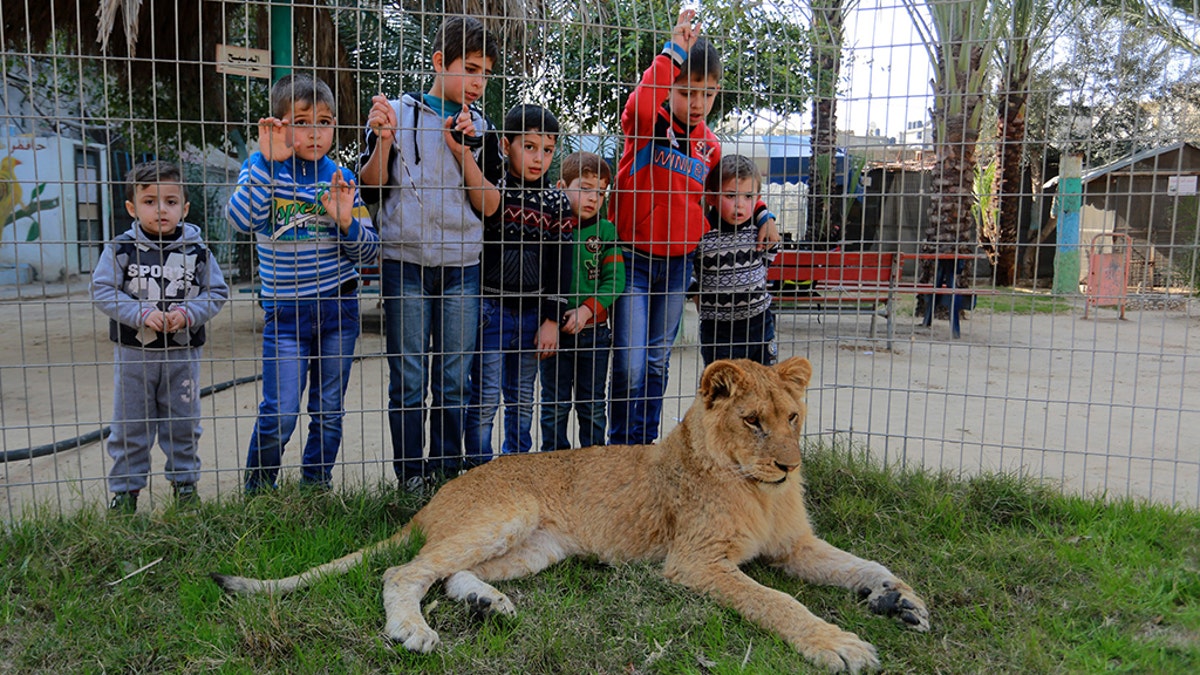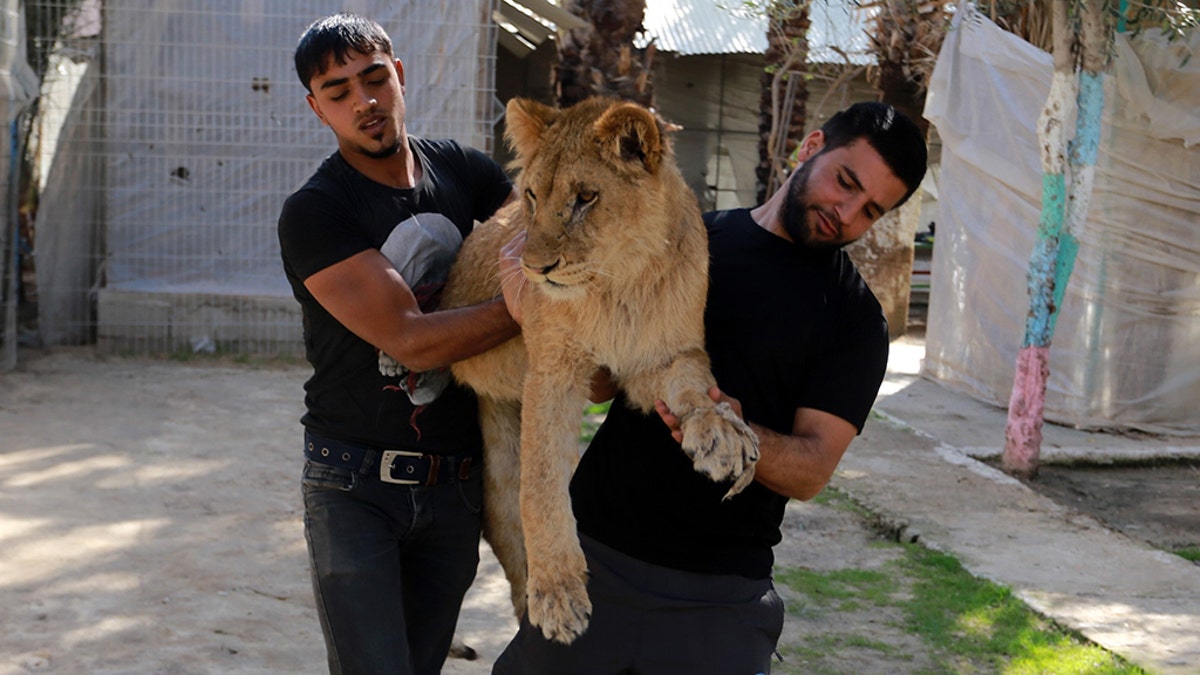
Palestinian children look through the fence of a lion cage at the Rafah Zoo in Gaza City, Gaza on February 13, 2019. Gaza's only animal care practice which was established 17 years ago faces closure due to economical problems caused by the Israeli blockade. (Getty Images)
A 14-month old lioness has been declawed by a Palestinian zoo so visitors can "play" with the animal, sparking outrage.
Zookeepers at the Rafah zoo in the Gaza strip ripped out the cub's claws - but left in her teeth - to give children an up close and personal interactive experience with the animal.
POLICE RECOVER RARE GOELDI'S MONKEY STOLEN FROM FLORIDA ZOO
'I'm trying to reduce the aggression of the lioness so it can be friendly with visitors,' said Mohammed Jumaa, 53, the zoo's owner.
Shocking pictures showed a veterinarian holding down "Falestine's" head while being declawed with a pair of shears.

Palestinian veterinarian Fayyaz al-Haddad, holds the paw of the lioness "Falestine" while inspecting her claws. (Getty Images)
The lioness was tranquilized and placed on a table two weeks ago while the vet sewed up a wound from her paw which was oozing blood. The vet then clipped her claws further down on Tuesday.
Because there are no specialized animal hospitals in Gaza, the operation took place at the zoo, which lacks the proper facilities. Animal activists allege that Falestine was subjected to "horrific pain" as she was declawed.
GAZA ZOO TRIES TO SELL LION CUBS FEARING COST OF CARE
Young children were subsequently pictured looking at the lioness, who has now been declared safe enough to play with.
"The claws were cut so that they would not grow fast and visitors and children could play with her," Fayez al-Haddad, the veterinarian who operated on Falestine, rationalized.
He denied the procedure is cruel, despite it being likened to amputating the fingers of a human up to the knuckle.

Gaza's only animal care practice which was established 17 years ago faces closure due to economic problems caused by the Israeli blockade. (Getty Images)
"We want to bring smiles and happiness to children while increasing the number of visitors to the park, which suffers from high expenses," Haddad said. "(The lioness) does not lose its innate nature."
CLICK HERE FOR THE FOX NEWS APP
Activists claim the declawing is just the latest attempt by the zoo, one of only a handful in the area, to draw in visitors.
Four Paws, an animal charity, told The Daily Mail: "For big cats, removing the claws is a particularly vicious procedure which causes long-lasting damage.
"Natural behavior, such as grabbing food or climbing, is hardly possible without an animal's claws. Since the amputation was not done in a proper vet clinic, the chance of infection is high."




















